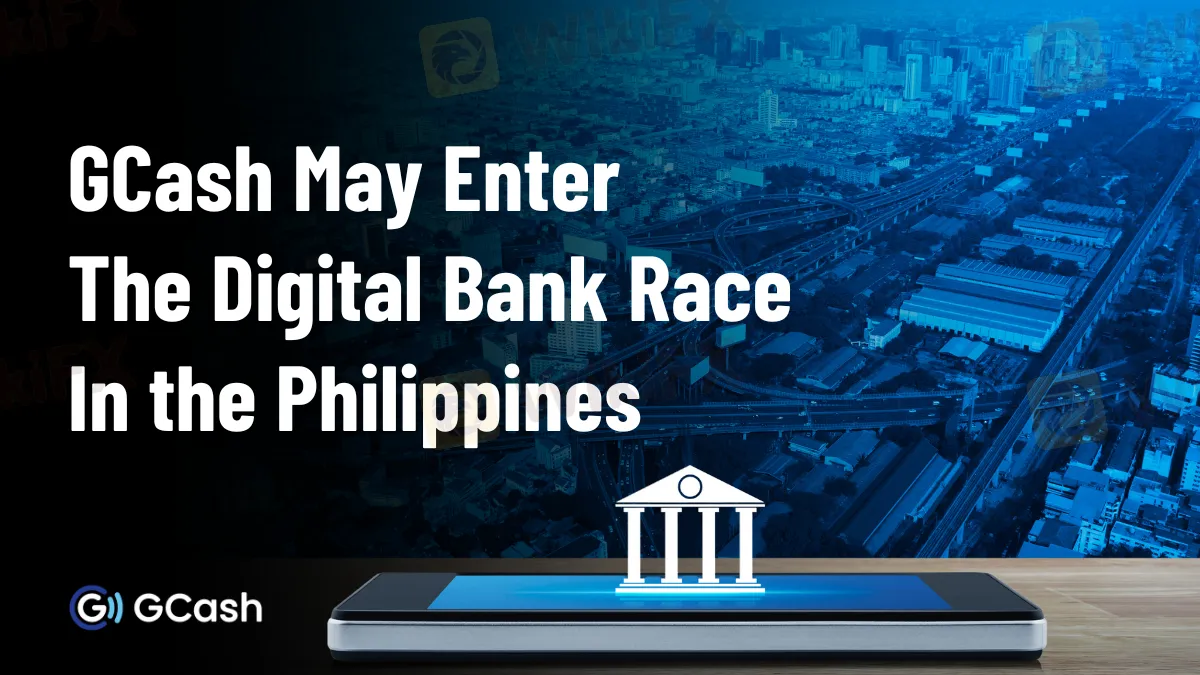简体中文
繁體中文
English
Pусский
日本語
ภาษาไทย
Tiếng Việt
Bahasa Indonesia
Español
हिन्दी
Filippiiniläinen
Français
Deutsch
Português
Türkçe
한국어
العربية
GCash May Enter the Digital Bank Race in the Philippines
Abstract:GCash considers a digital bank license in the Philippines as BSP lifts the moratorium, paving the way for potential expansion and competition in the digital banking sector.

GCash, the Philippines' top e-wallet provider, is considering entering the digital banking industry. According to Martha Sazon, CEO of GCash, the firm is contemplating applying for a digital bank license after the Bangko Sentral ng Pilipinas (BSP) declaration to remove its moratorium on new digital banking licenses beginning January 1, 2025.
This decision by the BSP allows for up to 10 digital banks to operate in the nation. While GCash is considering this move, Sazon said, “Nothing is definite at the moment.” Six digital banks have been founded in the Philippines since the Digital Banking Framework was implemented in December 2020. These include Tonik, Maya Bank, OFBank, UNObank, UnionDigital Bank, and GoTyme Bank.
With the embargo lifted, four more licenses will become available, providing chances for both new applicants and incumbent institutions eager to transition to digital banking. Given the growing interest in digital banking, GCash's prospective entry into this space is not unexpected. It would also follow in the footsteps of its rival, Maya. Known initially as PayMaya, Maya shifted from an e-wallet to a digital banking license before opening Maya Bank in April 2022. Since then, Maya Bank has garnered over 3 million customers and was recently included in Forbes' 2024 list of the World's Best Banks.
In recent developments, GCash received substantial fresh investments from Ayala Corporation and Mitsubishi UFJ Financial Group (MUFG), raising its worth to an astonishing US$5 billion. The total investment of US$800 million, which includes secondary and primary finance, is one of the biggest fintech investments in the Philippines to date. Ayala's subsidiary AC Ventures Holdings, Inc. (ACV) will acquire an additional 8% of GCash's parent firm, Mynt. Similarly, after binding agreements, MUFG Bank, Ltd. will purchase an 8% share in Mynt.

Sazon said that these funds would be used largely to boost GCash's lending business, which has already seen tremendous growth. GCash has disbursed PHP 155 billion in loans, representing a 73% year-over-year increase. The organization today serves 5.4 million borrowers, a figure that has increased by more than 70% in the last year. GLoan, a quick and simple loan solution that enables consumers to borrow up to PHP 125,000, is the driving force behind GCash's lending services. GCash differentiates itself from conventional banks by focusing on satisfying Filipinos' daily, small-scale financial requirements.
In addition to loans, GCash intends to expand its core payment services and pursue worldwide development. GCash now operates in 17 countries, with plans to expand its reach to the Filipino diaspora.
When questioned about the likelihood of an initial public offering (IPO), Sazon responded that, although an IPO is always an option, the company's primary emphasis is on long-term commercial development. She said that GCash is actively watching market circumstances before making final choices on a public offering, but no specifics on the IPO structure were disclosed.
Stay updated on GCashs potential move into digital banking and other fintech developments in the Philippines. Visit WikiFX News now for the latest insights!

Disclaimer:
The views in this article only represent the author's personal views, and do not constitute investment advice on this platform. This platform does not guarantee the accuracy, completeness and timeliness of the information in the article, and will not be liable for any loss caused by the use of or reliance on the information in the article.
Read more

Bank Negara Malaysia Flags 12 New Companies for Unauthorised Activity
Bank Negara Malaysia (BNM) has updated its Financial Consumer Alert List (FCA List) by adding 12 more entities, reinforcing its efforts to warn the public against unregulated financial schemes. Check if your broker made the list!

TradingView Brings Live Market Charts to Telegram Users with New Mini App
TradingView has launched a mini app on Telegram, making it easier for users to track market trends, check price movements, and share charts.

Georgia Man Charged in Danbury Kidnapping and Crypto Extortion Plot
Georgia man James Schwab charged in Danbury kidnapping tied to $230M crypto heist. Plot targeted couple for ransom after Miami altercation with son.

Bybit Shuts Down NFT Marketplace Amid Crypto Market Downturn
Bybit announces the closure of its NFT marketplace, citing efforts to streamline offerings. Discover the latest trends in the declining NFT market and its shift to utility-based growth.
WikiFX Broker
Latest News
Exposing the Top 5 Scam Brokers of March 2025: A Closer Look by WikiFX
Gold Prices Climb Again – Have Investors Seized the Opportunity?
Webull Launches SMSF Investment Platform with Zero Fees
Australian Regulator Warns of Money Laundering and Fraud Risks in Crypto ATMs
The Withdrawal Trap: How Scam Brokers Lure Victims into Paying More
FCA to Investors: Think Twice Before Trusting These Brokers
Trump\s tariffs: How could they affect the UK and your money
Trump gambles it all on global tariffs he\s wanted for decades
TradingView Brings Live Market Charts to Telegram Users with New Mini App
HTFX Spreads Joy During Eid Charity Event in Jakarta
Currency Calculator







